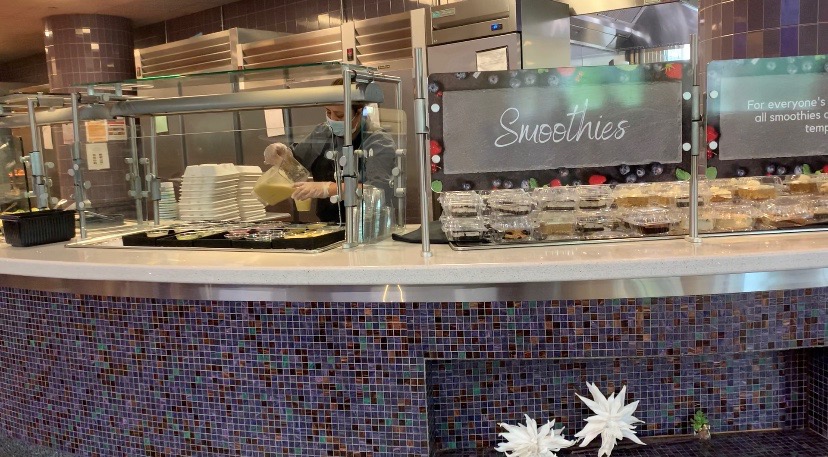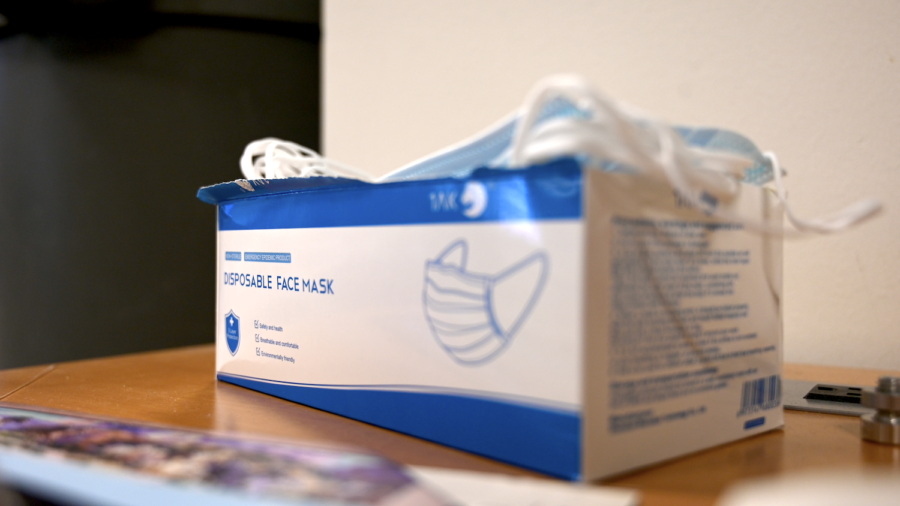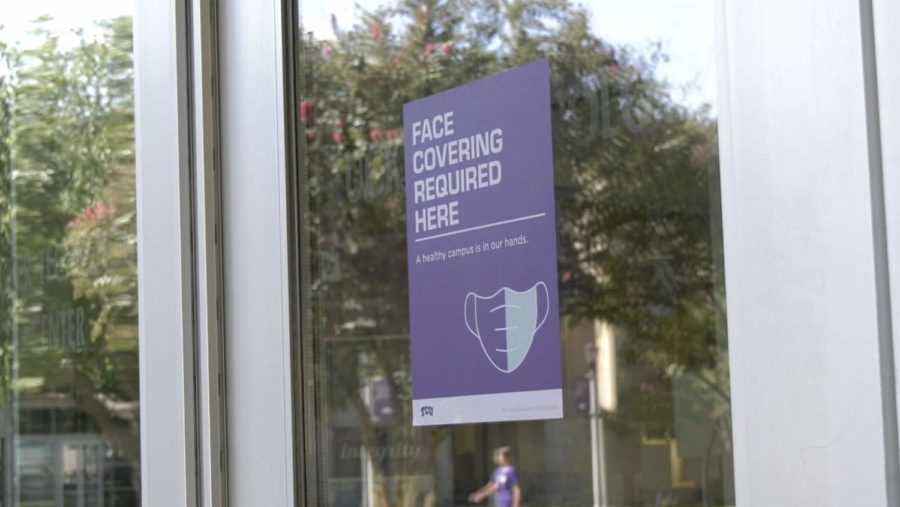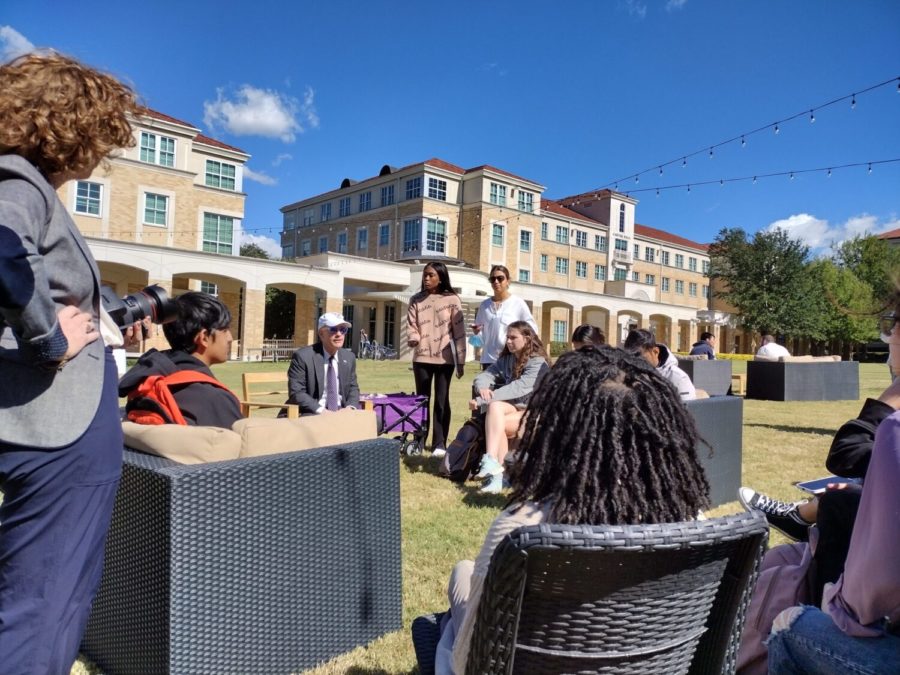TCU’s Food Recovery Network (FRN) is on hold due to COVID-19 regulations that restrict the group from delivering excess food off campus.
In a normal semester, the student-led organization picked up food three times a week from campus dining locations and then delivered it to the Northside Inter-Community Agency and Union Gospel Mission.
“I’m of course very disappointed that we are not able to pick up where we left off last semester and continue with deliveries,” said Sendy Argueta, TCU’s Food Recovery Network president. “But I’m hopeful that we will soon figure out a way to cope with the current situation and implement the necessary precautions that will allow us to get back to actively fighting food waste and helping out our community, especially in times like these, where the need may be even greater.”
TCU has suspended all university-sponsored domestic and international travel until at least Dec. 31, 2020. Any exceptions have to be approved by the university.
Wade Goodmay, the executive chef for TCU athletics who helps get the food together for FRN, said he wishes there weren’t rules in place that stop them from delivering food.
“It’s heartbreaking,” he said.
“It’s something that needs to be done,” Goodmay added. “It is by far one of the most important things- helping those that are without.”
For Goodmay, helping out with FRN is personal. He was homeless for about a month when he lived in San Francisco.
Having food available was a big part of his life and it is a reality a lot of people do not understand, he said.
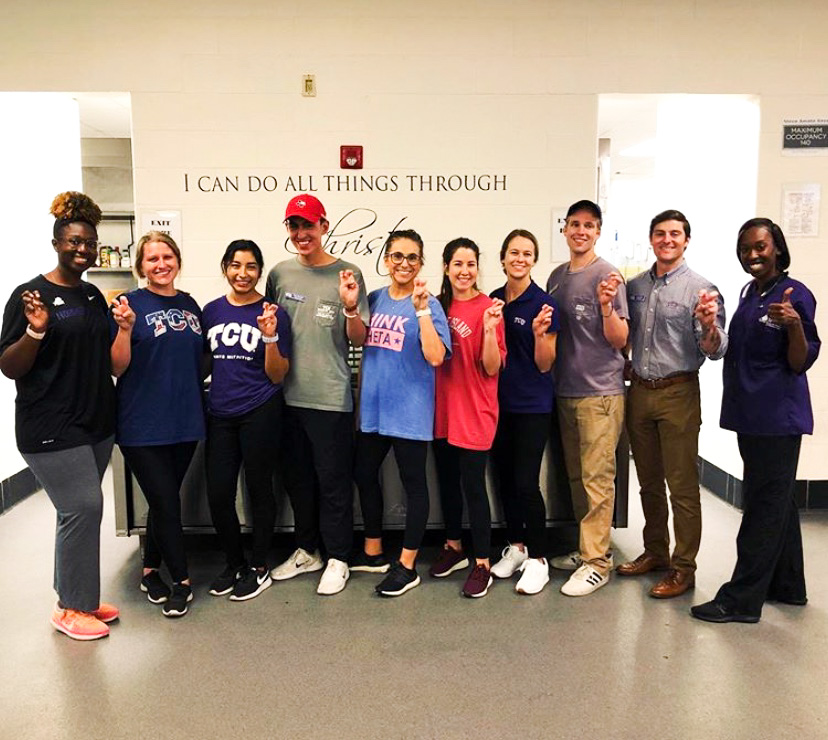
Reducing food waste before it happens
Changes to dining brought on by COVID-19 and an ongoing effort to cut down on food waste have reduced the amount of leftover food at TCU.
In 2018, TCU dining staff partnered with Leanpath to reduce food waste on campus. While composting or donating food can help deal with leftover food, Leanpath works to stop waste from occurring by using technology to help kitchens weigh food and track food waste.
Even before COVID-19, changes were being seen. Instead of having multiple pans of leftover food at the end of a meal, there was a manageable amount of food that would be given to FRN to take to Union Gospel Mission.
This semester, TCU is repurposing proteins and using some food for compost, but most sides and vegetables are trashed, said Lamont Meriwether, the manager at Market Square.
All food is served to-go style at on-campus dining locations. Since the days of buffets are temporarily gone, there is less food waste.
“Students are only taking with them what they really need,” said Swati Bharathi, the marketing director for dining services. “Students are not overstuffing their plates, so that has helped.”
Operating under restrictions
TCU is not the only campus operating under restrictions.
According to FRN National, only 22% of the 180 total chapters are doing regular recoveries, 10% are unable to do recoveries, and the remainder are in talks with their food donors or administration about what level of student activity is allowed.

(Map courtesy of Food Recovery Network)
FRN at TCU is hosting Zoom events with speakers to educate members on issues of food waste and sustainability. Celebrity chef Joel Gamoran spoke to the group about reducing food waste and practicing sustainability at home.
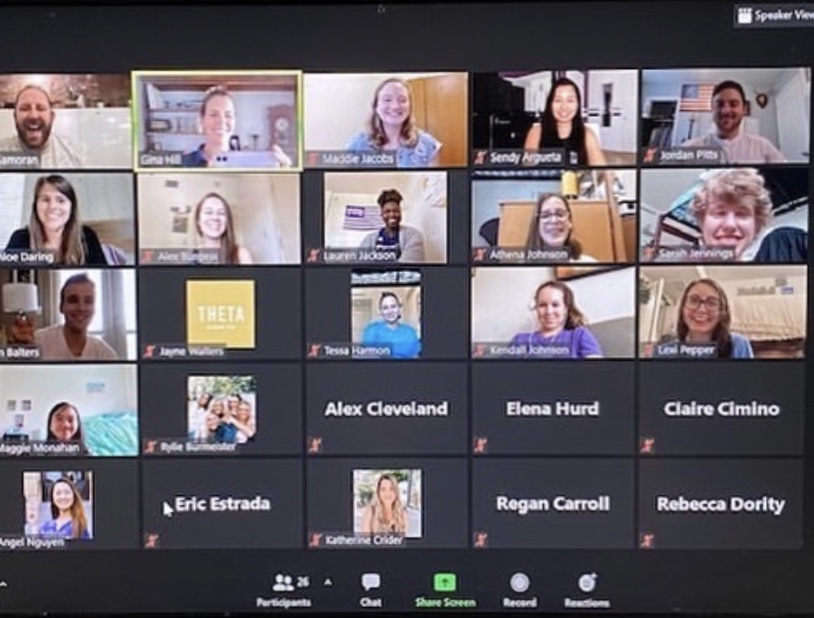
“Even if you aren’t actively volunteering or recovering or seeing that impact day-to-day, right now, we have time to set ourselves up for a lifetime of making an impact by continuing to learn and have conversations with people,” said Sydney Carroll, a programs and special events fellow and FRN national team member.
Carroll said they want to help students gain an awareness of the needs of people who are food insecure and the intersecting issues such as racial injustice and income inequality that make food insecurity a prevalent issue in America.
FRN National is providing online opportunities to help chapters volunteer online, engage in leadership opportunities, learn by attending webinars and connect with other chapters even if they are not currently able to recover food.
“People are still there waiting for their food and food is still getting thrown away,” said Argueta.
Argueta said the organization is currently brainstorming ways they can reduce risk to be able to pick-up and deliver food before they request special permission to leave campus.

